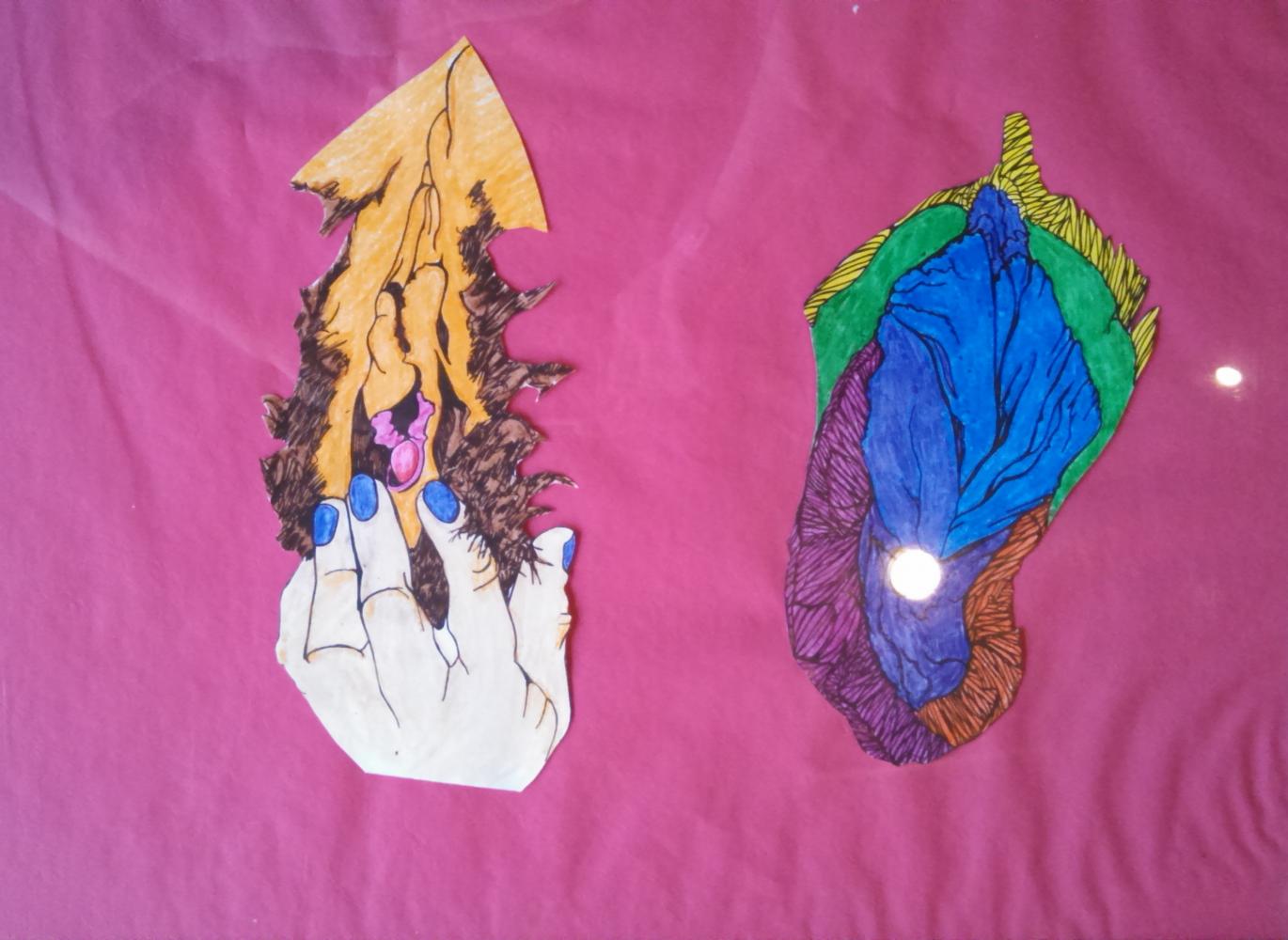"Progressive" Censorship
by Taylor Derrisaw | published Mar. 13th, 2015
Women’s bodies are often misunderstood and misinterpreted. The very sight of breastfeeding or a vagina is often labeled as obscene or undignified in a society warped by porn culture and sexism.
RIT prides itself on being one of the more progressive institutions in the country; despite this, there are underlying themes that sometimes suggest otherwise.
After being nominated to present her work in the University Gallery, second year graduate student Jacquelyn O’Brien submitted her piece depicting a hand opening a vagina. Her work drew parallels to Corrine’s book by adding bright and energetic colors to it.
After a week of having her piece displayed in the art gallery, O’Brien received an email saying she had to remove it from the area. “I imagine someone complained, because it had been up for a whole week and administration didn’t seem to have a problem with it,” she said.
The email was sent by Jessica Erickson, manager of the University Art Gallery, and stated that the work was “provocative” and that the gallery “can’t always be as progressive as we want.” Erickson declined an interview.
“This is exactly what my work is about, gender repression … [and] over-sexualization,” O’Brien commented. “It’s definitely unsettling and troubling.”
However, O’Brien believes that Erickson was receiving pressure from higher up to ask O’Brien to remove the work.
“I don’t really think it was her, she seemed like she was getting pressured,” said O'Brien
Sarah Taavola, first year graduate student and friend of O’Brien, supports her work and the message she was conveying. Taavola found it troubling that the email didn’t allow any room for conversation — it was merely an order. “I wish there would have been a conversation, not an email for [her] to pick it up…they didn’t bother having a conversation, which is worrying,” she said.
O’Brien and Taavola’s efforts are made to facilitate conversation about these kinds of topics.
“I think just openness to discussion. I feel like if that was open for discussion I would be able to relate better and we would be able to get somewhere without being stuc
k. ”
According to the University Gallery website, the Gallery’s mission is to “execute flawless events while featuring rotating exhibitions comprised of works that inspire creativity, imagination and inclusion for RIT.” Both O’Brien and Taavola believe the action is in direct violation of the gallery’s mission statement.
Taavola believes the decision will have ripple effects across the entire community. “The Fine Arts department [is] the anchor, the humanity that keeps everyone to the ground. For us to be censored, you’re losing a purity that we provide,” said Taavola.
The censorship of O’Brien’s work highlights many of the oppositions to change within society. “It’s only when it’s sex for the patriarchy are women allowed to be sexual. It’s repulsive,” O’Brien said.
Both O'Brien and Taavola's work show how much there is to change in society. If we really want to be a progressive institution and a progressive society, we're going to have to remove many of the institutionalized prejudices toward topics worth talking about.



